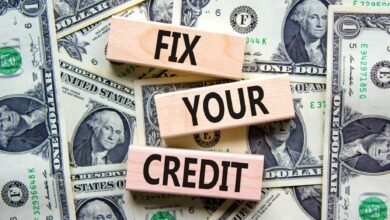It’s no secret that every industry has been impacted by the ongoing Coronavirus pandemic. If you walk into a grocery store, you may notice arrows on the floor that dictate the flow of foot traffic in an effort to enforce social distancing. Restaurants, bars and movie theatres are still operating at limited capacity and most public places you walk into have signs posted mandating that all employees and patrons wear facial coverings. With every type of business having been impacted by Covid-19, the real estate industry is certainly no different.
Whether you are buying a home or selling one, the process probably won’t work exactly like it would have in 2019. In a little over one year, there have been major changes to the way that the real estate industry operates. Knowing how these changes will impact you is an important part of successfully completing a real estate transaction in these unprecedented times.
That question may seem a little broad considering 2020 saw us endure a global pandemic, murder hornets and a modern-day plague of locusts. It’s safe to say that a lot happened in 2020. However, we want to look at what happened in the real estate market. While the first case of Covid-19 on American so diagnosed in January, the President declared it as a national emergency on March 13, 2020. Anytime something as significant as a national emergency there is a far-reaching impact on every aspect of the economy, including real estate.
Residential real estate transactions in April and May of 2020 dropped to their lowest point since the market crash of 2007. Generally speaking, a sudden decrease in demand leads to a sudden decrease in prices. However, that wasn’t the case with the real estate market during the Covid-19 pandemic. Instead, the prices remained close to the same point that they had been at for years.
This was largely attributed to the fact that interest rates reached an incredibly low number and people started trying to move to smaller areas, preferring suburbs and small towns over large metropolitan areas. While there was a decrease in home sales in some of the largest metro areas in the United States, the number of home sales in suburbs remained steady. Some industry experts believe this phenomenon can be explained by the fact that people were looking to escape the more crowded metropolitans like New York and live in smaller areas such as Nashville, Tennessee and Austin, Texas.
But what does all of that mean for you? Ultimately, the impact that the Coronavirus pandemic has on your real estate transaction will depend on which side of the transaction you intend to be on and where you plan on completing your transaction. Since the most important principle in real estate has, and always will be location, that aspect of the impact on real estate isn’t exactly “new.” That means that your 2021 real estate transaction will be impacted by which side of the deal you’re on, and this is how.
Covid-19’s Impact on Home Buyers
If you’re looking to buy a home during the ongoing pandemic, you may be amazed to find out about how much technology has streamlined the process. Over the course of the last year, home buyers have started purchasing homes without ever actually meeting their real estate agent! While that’s not necessarily a great thing, it’s also not inerrantly terrible. Virtual tours have been around for years, but many listing agents didn’t necessarily invest in them. However, when the pandemic created the issue of people not being able to physically walk through a home, whether because of social distancing or because home sellers simply didn’t want strangers in their home, the use of virtual tours increased significantly. Today, virtual tours are as common as listing photos, which means that your home shopping excursion may not require you to even leave your home.
However, there is more demand than there is supply in most markets. That’s unfortunate for you if you’re considering purchasing a home. You don’t have to be an economics major to understand the basic laws of supply and demand which are currently in action in the real estate market. If there are five buyers for every one listing, you have more competition when trying to buy a home. That has led to an increase in home prices and produced bidding wars for properties across the country.
Even though you may end up having to pay more for a property, you will enjoy lower interest rates. Mortgage lenders were amazed when interest rates reached an all-time low in March of 2020 when they dipped into the 3% range. Today, those rates are continuing to drop and have fallen to around 3.2%. While some industry experts forecast that they will increase later in the year, the fact remains that interest rates are currently the lowest they have ever been. That’s good for you if you want to act quickly in purchasing a home.
Covid-19’s Impact on Home Sellers
If you are considering selling your home during the current pandemic, you are pretty much sitting in the driver’s seat. Again, a cursory glance at the laws of supply and demand indicates that selling your home in the current real estate market shouldn’t be difficult. The same things that put buyers at a disadvantage put you in a position to get a great deal.
Since the supply of homes is currently so much lower than the demand for them, home prices have skyrocketed over the last year. According to Realtor.com, their median home prices have increased by more than 14% between the end of 2020 and the beginning of 2021. That is great news for anyone who is considering putting their home on the market. Basically, if your home was projected to sell for $100,000 six months ago, you can expect it to sell for closer to $114,000 today. Since every dollar matters in your real estate transaction, that extra $14,000 can be huge.
The decrease in interest rates also means that you may be in a position to sell your home quicker. In some cases, real estate listings may take months to sell depending on the market. However, with lower interest rates, buyers are reacting quickly and trying to get approved for a mortgage before rates go back up. That puts you in a great position to spend less time waiting for buyers to take the plunge into home ownership. When buyers are motivated to get approved for loans quicker, your home doesn’t have to sit on the market for nearly as long.
Some real estate experts believe that some of the changes brought about by the Covid-19 pandemic will revert back to the status quo as more people get vaccinated and the pandemic becomes more controlled. For instance, interest rates probably won’t always be in the 3.2% range. Other aspects of the post-pandemic real estate market will probably continue into the future, such as the surge in popularity of virtual home tours and the ability to complete transactions remotely. However long these changes remain in place, it’s important that you understand how to make them work in your favor as you try to get the best deal possible in your real estate transaction.






